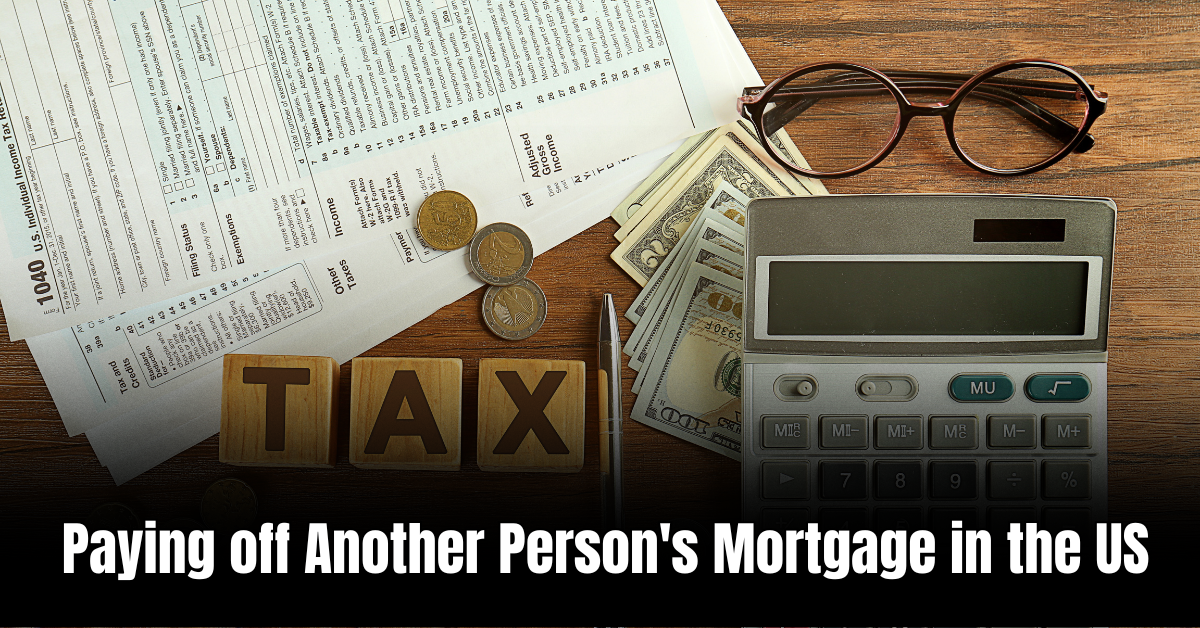Are you considering paying off someone else’s mortgage? This act of generosity can have significant tax implications, both for you as the giver and for the recipient. It’s essential to understand the potential tax consequences before making such a decision. In the United States, the tax implications of paying off someone else’s mortgage can vary depending on the circumstances. Let’s explore the key considerations to keep in mind.
Gift Tax
One of the primary tax implications of paying off someone else’s mortgage is the potential application of the gift tax. According to the IRS, a gift is “any transfer to an individual, either directly or indirectly, where full consideration (measured in money or money’s worth) is not received in return.” Essentially, if you pay off someone else’s mortgage without receiving anything of equal value in return, it could be considered a gift for tax purposes.
The current annual gift tax exclusion allows individuals to give up to a certain amount to another person each year without having to report the gift or pay taxes on it. For 2021, the annual exclusion is set at $15,000 per recipient. This means that you can pay off up to $15,000 of someone else’s mortgage in a calendar year without triggering the gift tax. However, if the amount exceeds $15,000, the excess would be subject to gift tax, and you would need to report it on Form 709 when filing your taxes.
Estate Planning and Inheritance
From an estate planning perspective, paying off someone else’s mortgage can have implications for both the giver and the recipient. If you’re the one making the payment, it’s essential to consider how this may impact your overall estate and lifetime gifting strategy. Large payments made on behalf of another person can reduce the total value of your estate, potentially affecting the distribution of assets upon your passing.
For the recipient, having their mortgage paid off could influence their inheritance and future tax liabilities. When a mortgage is paid off, it can alter the composition of the individual’s assets and may necessitate adjustments to their estate plan or tax planning strategies. Both parties should consult with a qualified estate planning attorney or tax advisor to assess the impact of such a significant financial transaction.
Income Tax Considerations
When you pay off someone else’s mortgage, there are income tax implications to consider as well. The IRS treats the amount of the mortgage paid on behalf of another person as a gift, and as such, it generally does not count as taxable income for the recipient. The recipient is not required to report the gifted amount as income on their federal tax return.
However, if the mortgage you’re paying off exceeds the annual gift tax exclusion amount, there could be potential implications for your income taxes. As the giver, you may need to file Form 709 to report the gift and determine if it affects your overall gift and estate tax liability. Consulting with a tax professional can help you understand the specific tax implications based on the amount you intend to pay off.
Documenting the Transaction
Regardless of the amount you plan to pay off, it’s crucial to properly document the transaction to avoid any misunderstandings or disputes in the future. Suppose you’re making the payment as a gift. In that case, it’s recommended to provide the recipient with a written statement clearly outlining the nature of the gift and any specific terms or conditions, if applicable.
In addition, maintaining detailed records of the transaction, including bank statements, mortgage statements, and a formal gift letter, can help support the legitimacy of the gift and demonstrate compliance with IRS regulations. Proper documentation is especially important if the mortgage payment is part of a larger financial arrangement or estate planning strategy.
Frequently Asked Questions: Discover The Hidden Tax Implications Of Paying Off Another Person’s Mortgage In The US
Can I Get Any Tax Benefits From Paying Off Someone Else’s Mortgage In The US?
Yes, if you pay off someone else’s mortgage, you won’t receive any immediate tax benefits. However, the homeowner may experience specific tax implications, such as gift tax or a potential reduction in mortgage interest deductions.
Do I Have To Pay Gift Tax If I Pay Off Someone Else’s Mortgage?
Paying off someone else’s mortgage can be considered a gift. Depending on the amount, you may be subject to gift tax. It’s essential to consult with a tax professional for guidance on gift tax rules and regulations.
What Happens To The Mortgage Interest Deduction If I Pay Off Someone Else’s Mortgage?
If you pay off someone else’s mortgage, that individual may lose the ability to deduct mortgage interest on their taxes. The responsibility for claiming mortgage interest deductions may shift to you as the new homeowner.
Can I Deduct The Mortgage Interest If I Pay Off Someone Else’s Mortgage?
Generally, you cannot deduct mortgage interest if you pay off someone else’s mortgage. The ability to claim mortgage interest deductions typically lies with the homeowner named on the mortgage.
Conclusion
While paying off someone else’s mortgage can be a generous and impactful gesture, it’s essential to be aware of the potential tax implications associated with such a financial decision. Understanding the gift tax rules, estate planning considerations, and income tax implications can help you make informed choices and avoid unexpected tax obligations. As always, seeking professional advice from a tax advisor or financial planner is advisable to ensure compliance with tax laws and to develop a comprehensive strategy that aligns with your financial goals.
When it comes to financial matters, knowledge is power, and being well-informed about the tax implications of paying off someone else’s mortgage can empower you to make thoughtful and responsible choices that benefit both the giver and the recipient.
Ismail Hossain is the founder of Law Advised. He is an Divorce, Separation, marriage lawyer. Follow him.





Leave a Reply